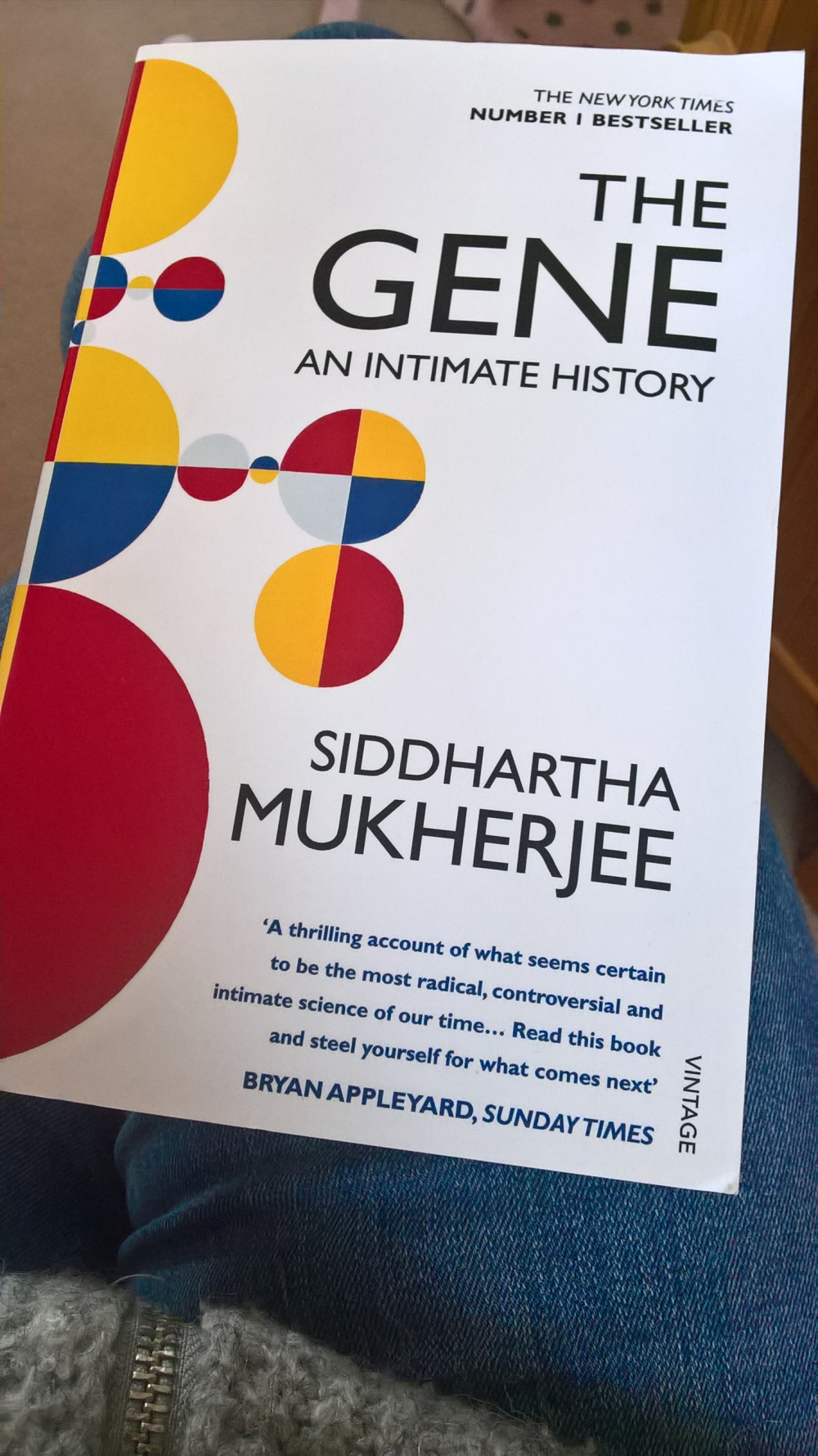What is a gene? What does it mean to be human? Looking for a good book to read? If these are questions filling your head then look no further, literally – the book name is in the title! ‘The Gene: An intimate history’ is the latest book by Siddhartha Mukherjee, author of ‘The emperor of all maladies’, that provides a detailed understanding of the scientists, experiments and mishaps that have shaped the history of the mythical hereditary element to the discovery of its composition and form.

Mukkherjee is truly a great writer and tells the ‘gene’ story beginning with Mendel and ending with Doudna* embedded with his own personal experiences along the way. The experiences he shares not only makes the book much more readable, but takes the book into reality – a trivial point easily forgotten when reading scientific novels is its impact and relevance to everyday life. Pleasingly, the audience is not limited to scientists but is comprehensive for all. Throughout the book your knowledge will grow and improve in the same manner as the discoveries themselves. Included are unnecessary, but greatly appreciated, details of the conversations and events from facial hair descriptions to odd quirks and quotes of individuals which makes you feel like he was actually there watching the moment unravel with you by his side.
This book isn’t just a good read, but an important one. We are at the forefront of a genetic revolution with the editing of human embryos just a snip of a Cas protein (1) away and this brings with it a host of ethical and biological considerations. This book is of no way an answer to these issues, but by equipping you with a historical perspective it allows you to consider them more deeply and warns of not repeating past mistakes such as the eugenics movement that triggered sterilisation and genetic cleansing.
Now, I have to be honest when I say I haven’t really read many books, so maybe my opinion on what is a ‘good’ book isn’t entirely valid and have tackily mentioned this last after you have read my thoughts. However, the list of books I have either half-read or only skimmed is far greater and thus for me to successfully reach the end of a book it means I enjoyed it and if that isn’t a good enough reason to go and read Mukkherjee’s new masterpiece then I don’t know what is.
*If you don’t know either of these names, it’s another reason you should read this book
References
(1) See the link for more on cas proteins and gene editing; https://asheekeyscienceblog.com/2017/09/07/crispr-just-got-snappy/
Share this:




